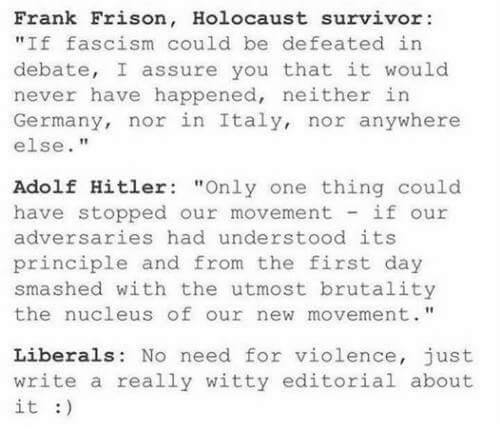I'm not saying King was wrong to drop the book from publishing. An intelligent maladjusted person can probably learn any lesson they desire from it. To kill or, in my case, not to kill. I probably would have done the same in his shoes.
But it's a really weird book. It's not about a school shooting. That's a mistake you might make if you hear what it's about second hand and find it in the libraries of a few teenage mass murderers. But it's about a school shooting as much as Grave of the Fireflies is about World War 2. That's just the background.
What happens in the book is this: Charlie Decker, American high schooler, murders two teachers and barricades himself in a classroom with some classmates for a few hours until a police sniper tries to murder him. It's in those hours between the gunshots where it gets weird.
See, Charlie doesn't hold these other kids hostage. He doesn't plausibly threaten any of them except for one, Ted, who tries to act like an adult. What he does with them has been described by reviewers in terms like "spellbinding" and "catalyzing" and "creating an otherworldly bubble where the rules of civil society and maybe our very reality get suspended". It occurs to me today (which is why I'm writing this), what Charlie does is create a safe space. A place where these kids can express themselves without fear. A place where they can drop their shields and be completely honest and vulnerable with each other for a moment. A place without adults.
They all, except for Ted, elect to stay there when given the explicit choice to leave. They say they have to finish "getting it on" and "working it out". This ineffable "it" Stephen King comes back to again and again - see "strapping it on" in Lisey's Story and It in, well, It. Something too primal to define in words, too personal, too frightening.
What they do with all this time is they tell stories about themselves, and this is spellbinding. Fascinating, tiny, utterly real stories about being ashamed of your mom for being poor, about sex in the backseat of a car where neither party knows what they're doing, about being little and thinking your daddy is a monster, about being fifteen and knowing your life is never going to go anywhere.
In the middle of all this senseless murder, and Charlie's and Ted's lives being destroyed, the kids find something raw and real and short-lived and more precious than gold. And you feel that when you read it. It feels like one of those conversations you have at most every ten years, usually sitting or lying still in the dark late at night, the ones that stay with you forever, even if you don't remember what either of you actually said. You just remember the feeling of closeness. Intimacy. Baring your soul. Getting it on, I guess.

